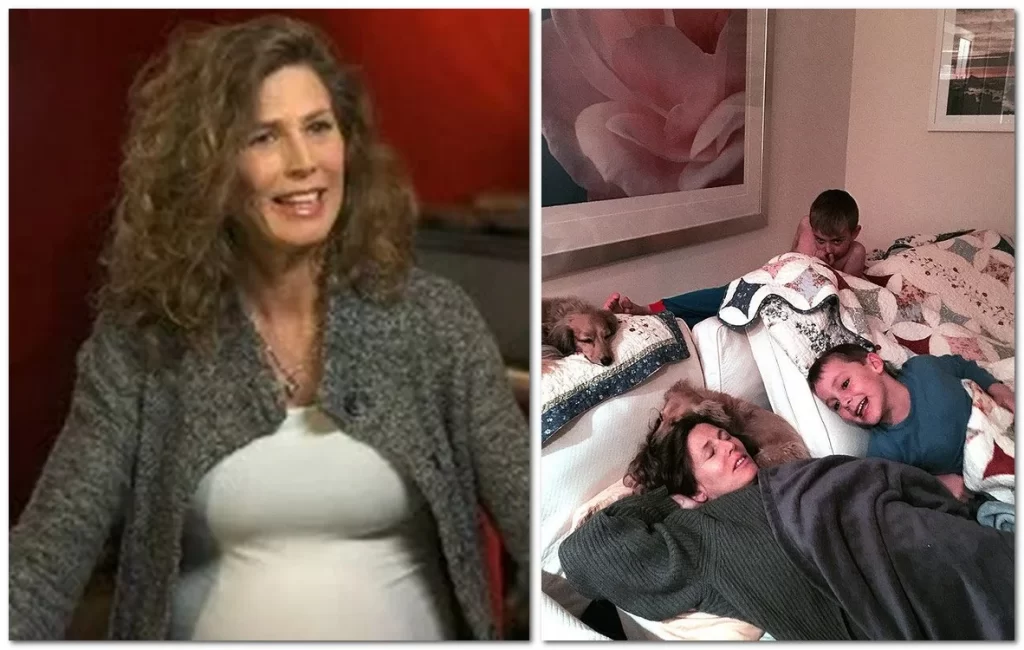Pregnancy is an exciting and transformative time in a woman’s life, but it’s not without its challenges. One of the biggest challenges for women who choose to have children later in life is the increased risk of complications associated with what is commonly known as geriatric pregnancy. In this article, we’ll explore what geriatric pregnancy is, the risks and challenges associated with it, and what women can do to ensure a safe and healthy pregnancy.
What is Geriatric Pregnancy?
Geriatric pregnancy is a term used to describe pregnancies in women who are 35 years of age or older. While this term may sound alarming, it is important to note that many women in this age group have healthy pregnancies and babies. However, women who become pregnant at an older age may be at higher risk of complications due to changes in their reproductive system and overall health.
Geriatric Pregnancy Age:
The age at which a woman is considered to be of advanced maternal age, or geriatric pregnancy, varies depending on the source. Some medical organizations define this age as 35 or older, while others use 40 or older. Women who become pregnant at these ages may face unique challenges and risks that younger women may not.
Geriatric Pregnancy Risks:
There are several risks associated with geriatric pregnancy that women should be aware of. These risks include:
- Increased Risk of Miscarriage: As women age, the risk of miscarriage increases. This risk is highest for women over the age of 40.
- Gestational Diabetes: Women who become pregnant at an older age are at higher risk of developing gestational diabetes, a type of diabetes that occurs during pregnancy.
- High Blood Pressure: Women who become pregnant at an older age may be at higher risk of developing high blood pressure, which can lead to complications such as preeclampsia.
- Preterm Labor: Women who become pregnant at an older age may be at higher risk of delivering prematurely, which can lead to complications for the baby.
- Chromosomal Abnormalities: The risk of chromosomal abnormalities, such as Down syndrome, increases as women age. This risk is highest for women over the age of 40.
Geriatric Pregnancy Down Syndrome:
Down syndrome is a chromosomal abnormality that occurs when a baby has an extra copy of chromosome 21. The risk of Down syndrome increases as women age, and it is estimated that the risk at age 35 is 1 in 350, while the risk at age 40 is 1 in 100. Women who are at increased risk of having a baby with Down syndrome may be offered genetic testing, such as amniocentesis or chorionic villus sampling, to assess the risk and make informed decisions about their pregnancy.
Managing Geriatric Pregnancy:
Despite the risks associated with geriatric pregnancy, many women have healthy pregnancies and babies. Women who become pregnant at an older age can take steps to manage their health and reduce the risk of complications. Some of these steps include:
- Preconception Counseling: Women who are considering pregnancy at an older age should talk to their healthcare provider about their overall health and any preexisting medical conditions that may affect their pregnancy.
- Prenatal Care: Women who become pregnant at an older age should receive regular prenatal care to monitor their health and the health of their baby.
- Healthy Lifestyle: Women who become pregnant at an older age should maintain a healthy lifestyle, including a balanced diet, regular exercise, and avoiding tobacco and alcohol.
- Genetic Testing: Women who are at increased risk of having a baby with chromosomal abnormalities may be offered genetic testing to assess the risk and make informed decisions about their pregnancy.

Against All Odds: Inspiring Geriatric Pregnancy Success Stories
- Janet Jackson: In 2016, at the age of 50, singer Janet Jackson gave birth to her first child, a son named Eissa Al Mana. Despite the challenges associated with geriatric pregnancy, Jackson reportedly had a healthy pregnancy and delivery.
- Halle Berry: Actress Halle Berry gave birth to her second child, a son named Maceo, at the age of 47. Berry has been open about her struggles with infertility and credits a healthy lifestyle and positive attitude for her successful geriatric pregnancy.
- Laura Linney: Actress Laura Linney became a first-time mother at the age of 49, welcoming a son named Bennett Armistead in 2014. Linney has spoken about the challenges and joys of motherhood later in life, and how it has enriched her life in unexpected ways.
- Kelly Preston: Actress Kelly Preston gave birth to her third child, a son named Benjamin, at the age of 48. Preston has been open about her struggles with fertility and how she overcame them to have a successful geriatric pregnancy.
- Sophie B. Hawkins: Singer Sophie B. Hawkins became a mother for the second time at the age of 50, welcoming a daughter named Esther in 2015. Hawkins has spoken about the joys and challenges of motherhood later in life, and how it has inspired her music and art.
These women and many others have shown that geriatric pregnancy can be a positive and rewarding experience, despite the potential risks and challenges. With proper prenatal care, a healthy lifestyle, and a positive attitude, women who become pregnant at an older age can have safe and healthy pregnancies and babies.
Conclusion:
Geriatric pregnancy is a term used to describe pregnancies in women who are 35 years of age or older. While women who become pregnant at an older age may face unique challenges and risks, many women have healthy pregnancies and babies. Women who are considering pregnancy at an older age should talk to their healthcare provider about their overall health and any preexisting medical conditions that may affect their pregnancy. With proper prenatal care and healthy lifestyle choices, women who become pregnant at an older age can have safe and healthy pregnancies and babies.
